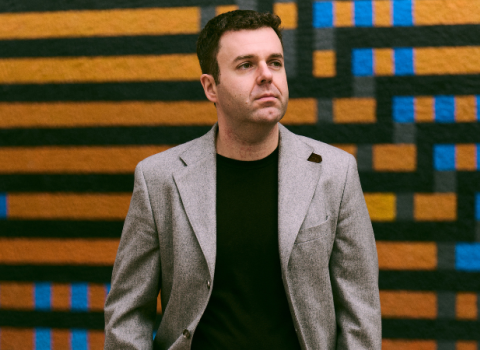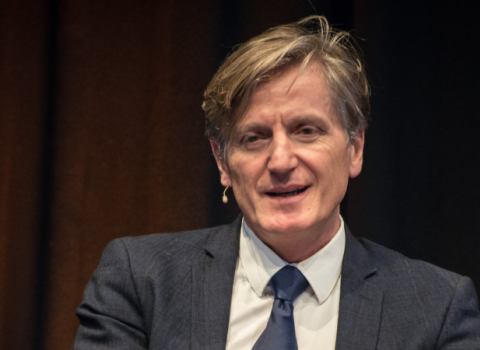After its damning report, Alex Brenninkmeijer, member of the European Court of Auditors, shares his thoughts on what is wrong with the European Institute of Innovation and Technology, and the prospects for the future
Eight years on from its foundation, the European Institute of Innovation and Technology (EIT) has not much to show for its €3 billion in EU money. “Up to now, we’re disappointed ….. there should be more results, but they’ve failed to deliver,” says Alex Brenninkmeijer, member of the European Court of Auditors (ECA) and chair of the team that wrote the highly critical report, published last Thursday.
With little evidence of tangible results or impact to date, the institute is a long way from achieving its goals and its funding model should be thoroughly revised, the report says.
There are two main reasons why the EIT is getting it wrong, according to Brenninkmeijer. First, it smothers partners in red tape; second, it does not have enough autonomy from the Commission.
From its headquarters in Budapest, EIT funds and oversees a huge distributed network of 800 academic and industry partners in Knowledge and Innovation Communities (KICs), devoted to promoting innovation in five different fields.
Brenninkmeijer visited KIC partners during the course of his investigation, and was told the EIT was a bureaucratic centre too focussed on audits. “The responses included the following: ‘they’re only interested in the paperwork and not what we are doing’,” said Brenninkmeijer.
One KIC finance manager said every year his office has to produce a 1,000 page document on why it deserved additional monies during the following year.
A very large international company looked into joining one of the KICs but concluded it was too much hassle, Brenninkmeijer said.
Company representatives interviewed for the report expressed concern that the KICs’ agendas are mainly driven by the university partners. “We talked to small businesses which complained that the starting point in EIT is education and the end point is education,” said Brenninkmeijer. “Improving the entrepreneurial culture of students is good but it should not be the only part of what the EIT does.”
Financial autonomy
The second biggest problem with the EIT is a lack of autonomy, said Brenninkmeijer. “Our suggestion is that the EIT should play a more independent role and find its own place in the world.”
The delay in achieving independence is unusually long, the report says. Other EU bodies, such as the joint technology initiatives, which like EIT, were created in 2008, took no more than three years to obtain full financial autonomy. The original target for EIT to become financially independent was 2010.
DG Education, which has oversight of EIT, says the failures are a result of the limited leadership and managerial abilities of the EIT management. The institute has had a high turnover of senior staff, with five different directors since 2008. The present incumbent, Martin Kern has been acting as interim director since August 2014. “Management turnover is problematic,” said Brenninkmeijer, “And an interim manager is not good for the philosophy of an organisation like the EIT.”
EIT future
The report was not critical throughout, with Brenninkmeijer saying he met really enthusiastic people in the KICs he visited. The number of EIT partners is now 800, among them giants like Siemens, Bayer, Philips, Imperial College London and the Fraunhofer Institute. That is an impressive achievement, said Brenninkmeijer.
Following the audit, which took place between December 2014 and June 2015, reforms have been made at the EIT, including strengthening governance, better reporting of KIC performance, and increased transparency.
“We took note of these efforts in our report,” said Brenninkmeijer. “We could not see the effectiveness of the new steps – it’s too early – but if I make a comparison between the steps they are taking and our recommendations, ours are much more far-reaching.”
After fifteen years, KICs are expected to cut the apron strings and stop receiving funding from EU coffers. But there are plenty of sceptics who question whether the EIT can ever become independent and profitable, with most of those interviewed for the report saying that KICs are unlikely to be profitable by then. From 2010-2014, EIT injected over €460 million into the KICs, but to date only one of them has declared any income.
Brenninkmeijer said the current dim prospect of KIC profitability should be worrying for the Commission.
In response to ECA’s findings the Commission has set up a review panel to make recommendations for EIT reform by the end of the year.
The panel members are Barbara Nowakowska, managing director of the Polish Private Equity and Venture Capital Association; Nicklas Bergman, a Swedish entrepreneur and investor; Frans van Vught, Dutch former rector of the University of Twente; Ann-Kristin Achleitner, German Scientific Director of Center for Entrepreneurial and Financial Studies at the Technical University Munich; and Janos Vecsenyi, Emeritus Professor with Corvinus University Budapest.
Creating the panel is a very important step, said Brenninkmeijer. “They should reflect on what will be the future of the KICs. Will they just flourish on the EU money? Or are they able, in the longer term, to make their own money?”





 A unique international forum for public research organisations and companies to connect their external engagement with strategic interests around their R&D system.
A unique international forum for public research organisations and companies to connect their external engagement with strategic interests around their R&D system.